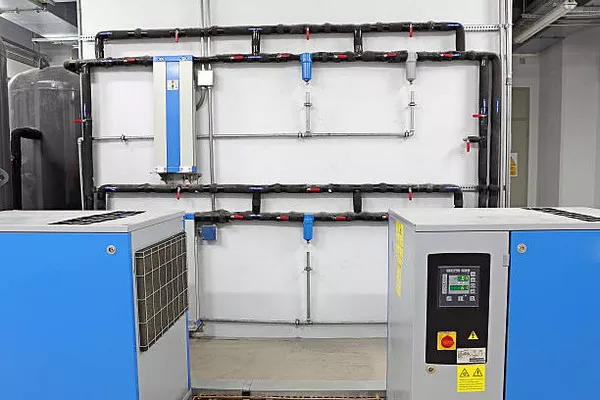The Porter Cable 150 PSI Air Compressor is a versatile and powerful tool that can be a game-changer for various applications, from inflating tires to powering pneumatic tools. To harness its full potential and ensure optimal performance, it’s crucial to understand the correct usage and maintenance procedures. In this comprehensive guide, we will delve into the key aspects of operating the Porter Cable 150 PSI Air Compressor effectively.
Getting Started: Familiarizing Yourself with the Basics
Before diving into operation, it’s essential to familiarize yourself with the basic components of the Porter Cable 150 PSI Air Compressor. This portable and compact unit typically includes an air tank, pressure gauge, regulator, and various connectors. Take a moment to inspect the compressor, checking for any visible damage or loose components.
Ensure that the compressor is placed on a stable and level surface to prevent any accidents during operation. Additionally, confirm that the power source matches the compressor’s requirements and use a grounded outlet.
Powering Up the Compressor
Power Connection:
Start by connecting the compressor to a suitable power source. Ensure that the power cord is in good condition and free from any damage. If an extension cord is necessary, make sure it’s of the appropriate gauge to handle the compressor’s power requirements.
Pressure Adjustment:
The Porter Cable 150 PSI Air Compressor features an adjustable pressure regulator. Set the desired pressure level on the regulator based on the requirements of your specific task. This allows you to control the output pressure and prevents over-inflation, extending the life of your tools and equipment.
Using the Porter Cable 150 PSI Air Compressor for Inflation
Tire Inflation:
One of the primary applications of this air compressor is inflating tires efficiently. To do this, attach the inflation nozzle securely to the air hose. Connect the nozzle to the valve stem of the tire, making sure it forms a tight seal. Turn on the compressor and monitor the pressure gauge. Once the desired tire pressure is reached, turn off the compressor, disconnect the hose, and replace the valve cap.
Sports Equipment and Inflatables:
The Porter Cable 150 PSI Air Compressor is also ideal for inflating sports equipment, such as basketballs and soccer balls, as well as inflatables like pool floats. Use the appropriate nozzle attachment for each application and follow the same inflation procedure.
Powering Pneumatic Tools
Tool Connection:
This air compressor is compatible with a wide range of pneumatic tools, such as nail guns, impact wrenches, and paint sprayers. Before connecting a tool, ensure the compressor is turned off. Attach the tool securely to the air hose using the proper connector. Be mindful of the tool’s operating pressure requirements.
Regulating Pressure for Tools:
Adjust the pressure regulator to match the recommended operating pressure of the pneumatic tool. This information is typically found in the tool’s user manual. Starting with a lower pressure setting and gradually increasing it allows for optimal performance and prevents damage to the tool.
Maintenance Tips for Longevity
Regular Oil Checks:
If your Porter Cable 150 PSI Air Compressor is oil-lubricated, check the oil level regularly. Follow the manufacturer’s recommendations for oil type and change intervals. Maintaining proper lubrication is crucial for the longevity and smooth operation of the compressor.
Air Filter Inspection:
Keep the air intake filter clean to ensure the compressor receives clean air, preventing damage to internal components. Clean or replace the filter according to the manufacturer’s instructions.
Draining the Tank:
Condensation can accumulate in the air tank over time. Periodically drain the tank to remove any water or moisture buildup. This simple maintenance task prevents corrosion and ensures the compressor operates at peak efficiency.
See Also What Can I Use An Air Compressor For At Home
Conclusion
The Porter Cable 150 PSI Air Compressor is a valuable tool for a variety of applications, offering reliability and versatility. By following the proper usage guidelines and implementing routine maintenance, users can maximize the efficiency and lifespan of this powerful compressor. Whether inflating tires, powering pneumatic tools, or tackling DIY projects, understanding the correct procedures enhances safety, performance, and overall satisfaction with this essential tool.

